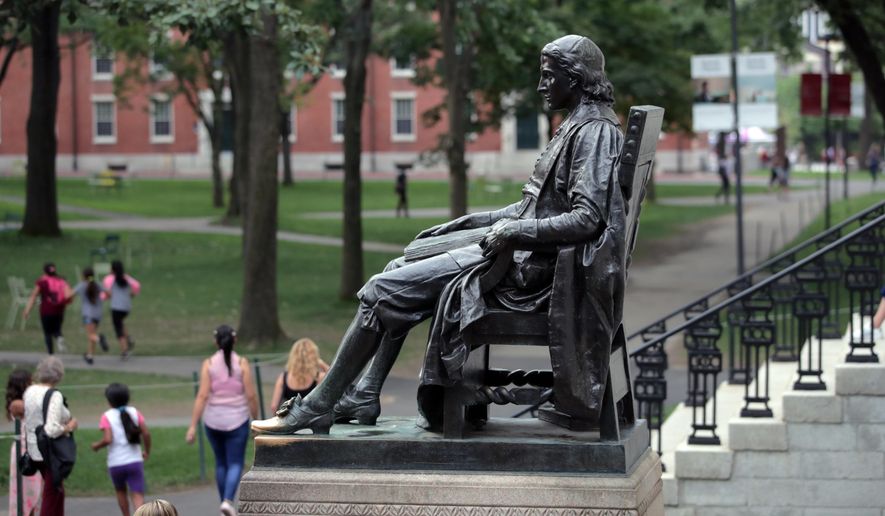A group of House Republicans on Monday launched an investigation into Chinese propaganda at U.S. universities, accusing the communist regime in Beijing of turning American schools into “indoctrination platforms.”
The ranking Republicans on seven House committees sent a letter to Education Secretary Betsy DeVos requesting information about China’s influence efforts on American campuses.
The lawmakers said China’s involvement with U.S. universities aims to further its theft of American technology and to bury research into the origins of COVID-19, the illness caused by the coronavirus.
China has disputed claims that the virus spread from a lab near the city of Wuhan, insisting it started at a wet market. It also has blamed the U.S., sometimes boosting conspiracy theories about the U.S. military.
“China’s strategic investment in our institutions of higher learning has long been a concern. This is especially true where China appears to be targeting institutions doing research with the Department of Defense in an effort to obtain sensitive information,” said Rep. Mac Thornberry of Texas, the top Republican on the House Armed Services Committee.
China has spent nearly $1.17 billion on U.S. campuses between 2014 and 2019, according to the Education Department’s Foreign Gift and Contract report website. Overall, foreign spending at U.S. universities totaled $15.76 billion.
“For some time, we have been concerned about the potential for the Chinese government to use its strategic investments to turn American college campuses into Indoctrination platforms for American students,” said the letter to Ms. DeVos.
A spokesperson for the Chinese Embassy did not respond to a request for comment.
The lawmakers called on Ms. DeVos to turn over information about her department’s probe into the extent of foreign influence in U.S. education, including gifts to ancillary foreign campuses, individual departments and professors.
Republican leaders have also asked for a staff briefing.
Foreign investment in U.S. higher education is a problem, the House members say, because it makes universities more vulnerable to intellectual property theft but it also creates a national security threat by putting at risk U.S. military research conducted at those schools.
Federal authorities have stepped up their probe of Chinese involvement in U.S. institutions of higher education over the past year.
Last week, it was revealed the Department of Education is probing financial ties between the University of Texas and the Wuhan Institute of Virology as part of its investigation into foreign funding at U.S. universities.
FBI Director Christopher A. Wray has repeatedly singled out China’s Thousand Talents Plan, a program for recruiting students for U.S. universities.
The plan isn’t illegal, but has been used to pilfer U.S. intellectual property to China, Mr. Wray told a Senate panel last year.
“The irony is that the U.S. is essentially funding that economic resurgence through various money it provides through grants, etc.,” he said. “I think we need to be a little bit careful that we don’t find ourselves in a situation where U.S. taxpayer money is being misappropriated for the advancement of China’s economic dominance over us.”
Earlier this year, federal prosecutors charged Harvard University’s chemistry department chairman with lying to the Defense Department about his ties to a Chinese academic-talent recruitment program.
Prosecutors said Charles Lieber concealed almost $2 million in an alleged scheme to shield his ties to the program, accused of stealing U.S. intellectual property from businesses and universities.
Since the coronavirus crisis began, American officials have become increasingly concerned about China’s role in academics.
The letter to Ms. DeVos was signed by Mr. Thornberry and the ranking Republicans on six other panels — Reps. Jim Jordan of Ohio (Oversight), Virginia Foxx of North Carolina (Education), Michael Rogers of Alabama (Homeland Security), Frank Lucas of Oklahoma (Technology), Devin Nunes of California (Intelligence) and Michael McCaul of Texas (Foreign Affairs).
• Jeff Mordock can be reached at jmordock@washingtontimes.com.




Please read our comment policy before commenting.